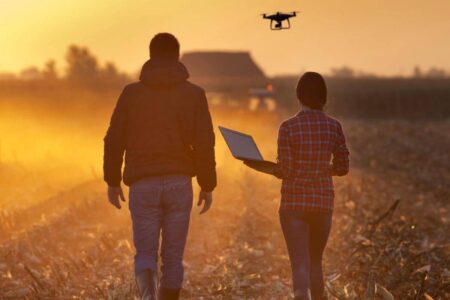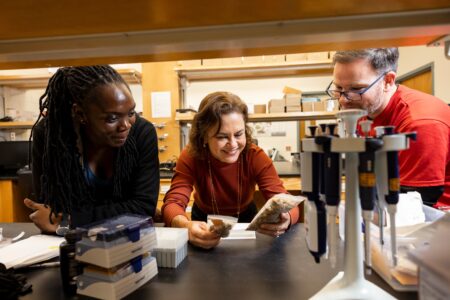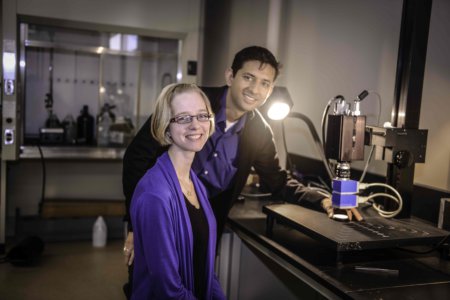
When it comes to global innovation, US universities are leading the way. They stand out for focusing less on imparting knowledge and more on actively involving students in research that bridges the gap between theoretical studies and real-world applications. This hands-on approach is especially critical in fields that directly impact global sustainability and technological advancement — like agriculture and engineering.
These fields are pivotal in developing farming technologies that increase crop yields while conserving water, crucial in regions facing severe droughts. They are even instrumental in advancing bioenergy sources, reducing our reliance on fossil fuels and mitigating the impact of climate change.
Hence, three top universities in the US are ensuring their students are not just ready for the future but are actively shaping it. Their commitment to solving pressing problems through research exemplifies their commitment to leading by example. Meanwhile, the comprehensiveness of their degree programmes explains why they stand at the forefront of global innovation in agriculture and engineering.

At UIUC, 80% of the students in the Department of Agriculture & Biological Engineering complete work, volunteer, or internship experiences. Source: University of Illinois Urbana-Champaign
University of Illinois Urbana-Champaign
At the University of Illinois Urbana-Champaign, the Department of Agriculture & Biological Engineering’s mission to “feed and power the world” isn’t one to gloss over. UIUC understands best that the modern world cannot survive without agricultural development. It’s why researchers are working hard to prevent excess phosphorus from polluting downstream waterways. Why they’re trying to improve the safety of agricultural occupations through understanding the causes of workplace injuries, and using advanced object recognition technology to increase wheat resistance to diseases.
Cutting-edge research projects like these are what places ABE on the pinnacle of innovation — and it streams all throughout the department’s academic programmes. ABE offers two undergraduate degrees that focus on sustainability in food, agriculture, energy, and the environment: Agricultural and Biological Engineering, and Engineering Technology and Management for Agricultural Systems.
On the other hand, the options for graduate degrees are wider, with six programmes like the MS in Agricultural and Biological Engineering, and the Master of Engineering in Digital Architecture. No matter the level, these programmes equip students with the technical skills needed to succeed in a professional career. The agricultural and biological engineering graduate programme is ranked fourth in the nation by the US News & World Report.
Problem-solving skills bloom within state-of-the-art research facilities, where faculty and students innovate to improve the state of day-to-day life. One of them is called the Energy Biosciences Institute (EBI), which aims to combat global warming through the reduction of fossil fuels. Another’s the Farm Research and Training Centre (FRTC), where students conduct research for poultry and swine across 78 contiguous acres.
If you’re interested in the holistic, real-world embedded experience at the University of Illinois Urbana-Champaign, check out the Department of Agricultural & Biological Engineering today.

The Carl and Melinda Helwig Department of Biological and Agricultural Engineering at Kansas State University aims to advance the knowledge and application of engineering and technology to living systems, agriculture and the environment. Source: Kansas State University
Kansas State University
The Carl and Melinda Helwig Department of Biological and Agricultural Engineering at Kansas State University offers undergraduate and graduate degrees that advance the knowledge and application of engineering and technology to living systems, agriculture and the environment. Here, you learn to make a difference locally and globally by developing ways to protect and manage natural resources, alternative energy sources, and systems to provide food and fibre to a growing global population.
It’s an inspiring journey — one that does not need to stop at just one degree. Qualified applicants can earn a Bachelor of Science and Master of Science in five years through the accelerated BS/MS programme in biological systems engineering.
At the undergraduate level, expect to interact with faculty members a lot thanks to abundant undergraduate research opportunities. These take you to the lab and the field and during summer, internship opportunities let you upskill in a practical setting. At the graduate level, many students are fully funded, with tuition waived and a living stipend provided.
Recently, K-State BAE launched the interdisciplinary Institute for Digital Agriculture and Advanced Analytics. This people-centred hub will transform learning, research and outreach around digital technologies and advanced analytical methods. Work done at the institute will include developing and integrating analytical methods and digital technologies — like sensors, automation and robots — to enhance food production and inform decision-making for sustainable and resilient systems. BS in Agricultural Technology Management students, which covers areas such as precision agriculture, production agriculture, and water management, are set to benefit the most from this institute.

Purdue offers academic advising, tutoring, job placement services and more that guide students towards their goals. Source: Purdue University
Purdue University
Purdue University has a history of empowering students to make their mark on the world. Founded over 150 years ago, the university has earned its reputation as the fourth most trusted public university and the seventh best value school in the US.
Purdue’s colleges and schools are dedicated to preparing students for a competitive job market through a diverse range of academic offerings. The College of Agriculture offers a natural resources and environmental science major, while the College of Science provides programmes in environmental geosciences, as well as ecology, evolution, and environmental sciences.
The College of Engineering offers a major in environmental and ecological engineering. Meanwhile, the Environmental and Natural Resources Engineering major in the Agricultural and Biological Engineering Department has multiple entry paths, ensuring students have the flexibility to pursue their passions.
These programmes are informed by the research taking place at Purdue University’s over 400 research labs that drive global change and improve lives across industries. The university’s pursuit of innovation has earned it a place among the world’s top-ranked research universities and recognition as one of the top 10 most innovative schools in the US for six consecutive years.
*Some of the institutions featured in this article are commercial partners of Study International










